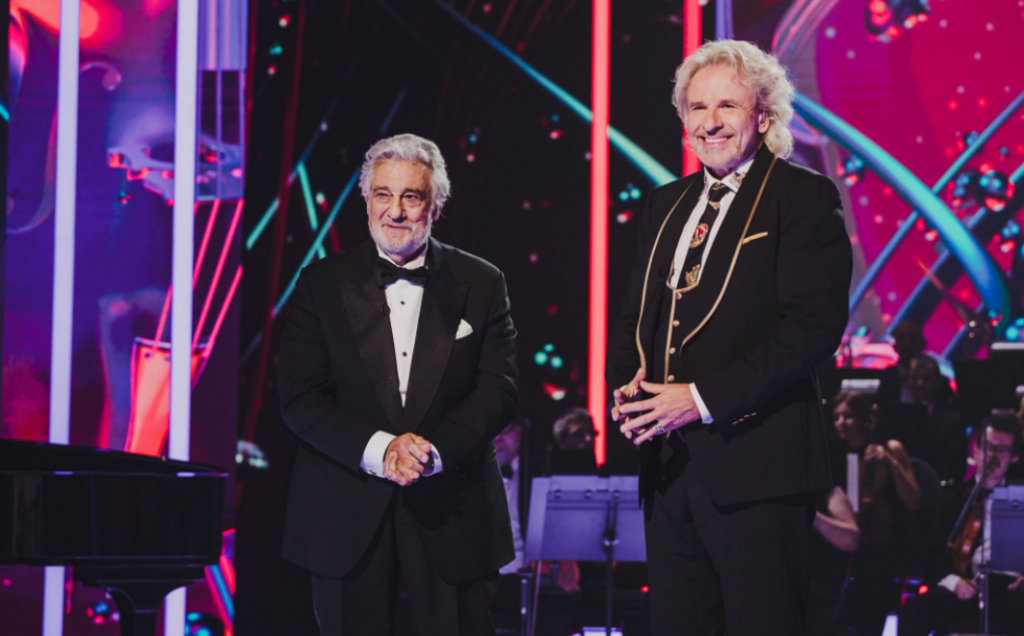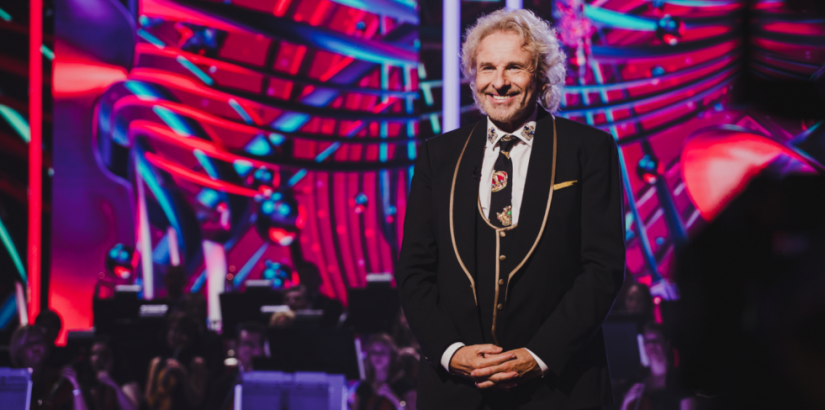The internationally expanding Virtuosos classical music television talent search began its sixth season this last November. This time, young people from the four Visegrád countries and Serbia compare their skills and knowledge. The super jury of the contest features international stars like Spanish opera singer Plácido Domingo or German television personality Thomas Gottschalk.

Thomas Gottschalk has been a successful talk show host both in radio and television in lighter genres, so, it was a bit of a surprise to see him appear in the world of classical music.
“After such a long television career, I was happy to face completely new challenges. I have never worked in a classical music talent competition before. And neither have I moderated in English for a non-English speaking audience, nor have I worked in any form in Eastern Europe. So, this event is, of course, a unique opportunity and a late triumph for me and I was happy to accept this challenge,” he says.
Bridge between the event and the audience
Eight years ago, Thomas Gottschalk was already a judge in ‘Das Supertalent’, which had several genres not just (classical) music. As to what experience from that job he can use when presenting the Virtuosos show, he says he admires these talented children. “I am always excited to I see what children can do, how amazing they are. The fact is that I have learned that the moderator is just the presenter who creates the connection between the show and the audience. I know this is about young talents and they are the focus of the show. I am the bridge between the event and the audience, nothing more or less.”

The show is not only for Hungary but also for participants and audiences of four other countries of the region. That also presents a sort of challenge regarding this multi-language environment. “I’m German, speaking English in the show, the children come from Hungary, the Czech Republic, Poland, Slovakia and Serbia. That makes things a bit complicated. But on the Virtuosos Visegrád Four Plus show we had to deal with super-intelligent children, for whom that wasn’t a problem,” Thomas Gottschalk says. “You quickly forget the language barrier. The theme of this program is: ‘We play the same language’. A Mozart aria sounds the same in Hungary as it does in Germany,” he adds.

Impressions
“As soon as the studio doors were closed and the lights were off, things were similarly professional as if I was working in a German or American TV-show. I couldn’t find any major differences. The Hungarians were perhaps a little nicer than the Germans. There was also more improvisations during the Hungarian filming, I think it was part of the concept to make the whole thing more lively,” he summarizes his impressions.
Regarding the possibility of putting this format on the small screen in Germany and whether it would be successful there, as well, the television personality is of the view that at first, he thought “it would probably be too slow for our hectic German television. But then, the necessary dynamics were done with the editing and I really like how the show turned out to be. The Eastern Europeans seems to appreciate classical music more than the German audience.”
He recalls that once a year, he does a classical show that involves an award ceremony. “If it airs on Sunday evening, it will get around a million viewers. Great names such as Jonas Kaufmann or Anne-Sophie Mutter perform there. The interest in Germany as a cultural country and also in public television for classical music is obviously not as great as in Hungary. However, I am sure that the producer of Virtuosos, Mariann Peller knows that she needs to alter the format sometimes to fit the different audiences´ television consuming habits, without taking away the essential values of the show,” Thomas Gottschalk concludes.
The interview was orignally published in Diplomacy & Trade, written by Sándor Laczkó.
